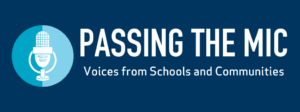
Preparing Fifty Million Young People for Their Futures
TNTP’s new strategic plan is designed to prepare 50 million young people for meaningful work and a meaningful life, bridging the gap between access and capability.

Blog Post
TNTP’s new strategic plan is designed to prepare 50 million young people for meaningful work and a meaningful life, bridging the gap between access and capability.

Blog Post
Read how instructional coaching, coherent support, and the science of reading are accelerating early literacy in rural Missouri.

Blog Post
Explore how schools are reimagining career-connected learning—from early exposure to high school immersion—to equip students for the future.

Blog Post
Students deserve career pathways that lead to success. ROI studies give states the data to align programs with high-wage, high-demand careers.

Declining math scores across the nation call for systemwide solutions. District leaders can focus on coherence to accelerate learning and increase future opportunities for students.

Despite sobering data on student academic performance, Dr. Brownie reminds us that with coordinated, consistent efforts, it is possible to accelerate learning at scale in systems and states across the nation.

Confluence Academies wanted to help teachers fill in learning gaps after COVID. As they shifted their focus to consistent, high-quality instruction, they created a culture of change.

A principal draws upon her past to transform her students' skills and confidence.

Reflections on our work to accelerate learning in Maricopa County, Arizona.

Massachusetts Education Commissioner Jeffrey Riley discusses the state's Acceleration Roadmap

Two years after Covid-19 forced nationwide school closures, the academic toll of the pandemic is coming into focus—and it's a sobering picture.

A system leader tells us about how he's brought high-impact tutoring to thousands of students.

No student should have to sacrifice language or culture to access challenging, engaging instruction.

How principals can implement learning acceleration in their schools

Typical remediation doesn't work. Schools need to be ready to put every student on the fast track to grade level.

When schools reopen, they need to accelerate students' access to grade-level work, not delay it.

Read how instructional coaching, coherent support, and the science of reading are accelerating early literacy in rural Missouri.

Explore how schools are reimagining career-connected learning—from early exposure to high school immersion—to equip students for the future.

Discover how career-connected learning links academics and real-world skills to prepare students for meaningful, future-ready careers.

Declining math scores across the nation call for systemwide solutions. District leaders can focus on coherence to accelerate learning and increase future opportunities for students.

Confluence Academies wanted to help teachers fill in learning gaps after COVID. As they shifted their focus to consistent, high-quality instruction, they created a culture of change.

An interview with the superintendent of Jeffco Public Schools on creating belonging, consistency, and coherence at the district level.

A community college sees increased enrollment in training programs for new teachers and facilitates social mobility by embedding HQIM in their curricula.

Ednovate, a network of six high schools in California, coordinates support for multilingual learners by prioritizing their input and involving leadership.

Reflections from TNTP’s CEO on a year of extraordinary collective impact.

Key questions for school leaders to assess, reflect, and course-correct their schools’ progress towards effective implementation of an evidence-based literacy approach.

A principal and instructional coach discuss how the Good to Great experience has changed the way they learn, lead, and teach and how our partnership led to students having a new-found math identity.

Summer professional learning opportunities to kickstart next school year with purpose and vision.

Explore how schools are reimagining career-connected learning—from early exposure to high school immersion—to equip students for the future.

Students deserve career pathways that lead to success. ROI studies give states the data to align programs with high-wage, high-demand careers.

In this time of volatile federal policy and uncertain funding, K-12 leaders can hone specific budgeting strategies to plan and prepare excellent learning experiences for students.

TNTP’s new webinar series spotlights practices and real-world solutions that align with our research and change students’ lives in school and beyond.

While our nation's leaders wrestle with questions of governance, America's young people are in crisis.

Despite sobering data on student academic performance, Dr. Brownie reminds us that with coordinated, consistent efforts, it is possible to accelerate learning at scale in systems and states across the nation.

Durable skills are a key part of preparing young people for a dynamic workforce. Dr. Ohanian shares takeaways from America Succeeds’ latest research.

TNTP’s CEO, Dr. Tequilla Brownie, shares why teacher diversity is essential for building a public education system that truly prepares young people to thrive.

Reflecting on a year of impact, learning, and working together to ensure all young people have pathways to thriving lives in adulthood.

An interview with the superintendent of Jeffco Public Schools on creating belonging, consistency, and coherence at the district level.

The authors of the Aspen Institute's recent report offer an optimistic view on educational policy as an issue that can bridge political differences.

This election season, voters should remember the power of their vote to influence education issues in their community at the local and state levels.

TNTP presents two low-cost, high-impact tools to help schools and districts deepen family engagement by combining real-time data with trusted connections—starting now.

An interview with the superintendent of Jeffco Public Schools on creating belonging, consistency, and coherence at the district level.

In honor of Latinx Heritage Month, TNTP highlights five ways strategic partnerships and collaborations across sectors can drive real, systemic change for Latinx students.

This election season, voters should remember the power of their vote to influence education issues in their community at the local and state levels.

Our Block is an online mapping tool of trusted community resources so educators, counselors, and social workers can help families access what they need.

Ednovate, a network of six high schools in California, coordinates support for multilingual learners by prioritizing their input and involving leadership.

Choosing high-quality instructional materials takes collaboration, communication, and a clear vision for equitably serving all students.

17 North Carolina school districts show why students deserve a seat at the table.

A parent explains why connecting with families about the summer is so important.

Learn how Central Falls Schools District in Rhode Island created learning pods that were grounded in community—and how students are benefiting.

TNTP Vice President Michelle Mercado reflects on the power of fellowship and community and how it shaped her identity.

A principal and teacher and Harper-Archer Elementary School in Atlanta reflect on their school's focus on high expectations.

Declining math scores across the nation call for systemwide solutions. District leaders can focus on coherence to accelerate learning and increase future opportunities for students.

Confluence Academies wanted to help teachers fill in learning gaps after COVID. As they shifted their focus to consistent, high-quality instruction, they created a culture of change.

Ednovate, a network of six high schools in California, coordinates support for multilingual learners by prioritizing their input and involving leadership.

TNTP’s Insight surveys show that strategies for retaining teachers can be low-cost and as simple as offering positive feedback and asking them to stay.

Learn about TNTP’s bold new North Star: transforming the PK-12 education system to drive academic, economic, and social mobility for all young people.

A principal and instructional coach discuss how the Good to Great experience has changed the way they learn, lead, and teach and how our partnership led to students having a new-found math identity.

We examine the data on teacher vacancies and absences to discover what's causing disrupted learning—and what it might take to fix it.

Summer professional learning opportunities to kickstart next school year with purpose and vision.

How can holistic support for students and staff help schools thrive?

Reflections on our work with Ector County ISD to support school leaders.

The School Leaders of Color Collective to build transformative Black and Hispanic/Latinx leadership communities.

A system leader tells us about how he's brought high-impact tutoring to thousands of students.

Reflecting on a year of impact, learning, and working together to ensure all young people have pathways to thriving lives in adulthood.

Learn about TNTP’s bold new North Star: transforming the PK-12 education system to drive academic, economic, and social mobility for all young people.

Tequilla knows that a great education can break the cycle of intergenerational poverty—because that is her story.

A few TNTP staff members share why they work at TNTP.

To introduce you to our new blog design, we’ve highlighted nine of our most popular pieces.

What does our flexible and virtual work environment look like in practice?

An in-depth look at the work that goes into designing a TNTP report.

Capturing who we are and how we work.

Setting the bar high for employees pushes them to grow.

Reflecting on TNTP’s infancy and maturation.

A Q&A with incoming TNTP President Karolyn Belcher.

Get to know incoming TNTP CEO Dan Weisberg.

We can overcome a bilingual teacher shortage by recruiting from different fields, improving incentives for teachers to receive training in multilingual education, and reducing barriers to certification.

In honor of Latinx Heritage Month, TNTP highlights five ways strategic partnerships and collaborations across sectors can drive real, systemic change for Latinx students.

Ednovate, a network of six high schools in California, coordinates support for multilingual learners by prioritizing their input and involving leadership.

As we celebrate Multilingual Advocacy Month, TNTP is deepening our support through research, policy, and opportunities for authentic engagement.

Key questions for school leaders to assess, reflect, and course-correct their schools’ progress towards effective implementation of an evidence-based literacy approach.

Learn why we believe this movement presents a once-in-a-generation opportunity to transform literacy nationwide for all students.

Choosing high-quality instructional materials takes collaboration, communication, and a clear vision for equitably serving all students.

Reflections of a journey to reclaim language and cultural identity.

A former multilingual learner reflects on the need for better-equipped educators to support newcomers and multilingual students.

Perspectives on honoring and affirming the value of our Latinx students’ linguistic identities every day.

A Latino educator's story of reclaiming his identity as a bilingual, gay, Latino, first-generation college graduate and son of immigrants.

New data on ARP ESSER spending.

Explore how schools are reimagining career-connected learning—from early exposure to high school immersion—to equip students for the future.

TNTP presents two low-cost, high-impact tools to help schools and districts deepen family engagement by combining real-time data with trusted connections—starting now.

TNTP’s new webinar series spotlights practices and real-world solutions that align with our research and change students’ lives in school and beyond.

Confluence Academies wanted to help teachers fill in learning gaps after COVID. As they shifted their focus to consistent, high-quality instruction, they created a culture of change.

An interview with the superintendent of Jeffco Public Schools on creating belonging, consistency, and coherence at the district level.

Our Block is an online mapping tool of trusted community resources so educators, counselors, and social workers can help families access what they need.

Ednovate, a network of six high schools in California, coordinates support for multilingual learners by prioritizing their input and involving leadership.

TNTP’s Insight surveys show that strategies for retaining teachers can be low-cost and as simple as offering positive feedback and asking them to stay.

Key takeaways from TNTP's recent webinar exploring strategies for boosting attendance and overcoming discipline issues, and two actionable tools that can immediately be put into practice.

TNTP's CEO, Tequilla Brownie, Ed.D., reacts to the Supreme Court’s affirmative action ruling and our collective work ahead to make social and economic mobility a reality for every student.

What would make teachers really feel valued and celebrated? Flexibility, sustainability, and joy.

How can holistic support for students and staff help schools thrive?

Read how instructional coaching, coherent support, and the science of reading are accelerating early literacy in rural Missouri.

The authors of the Aspen Institute's recent report offer an optimistic view on educational policy as an issue that can bridge political differences.

Learn why we believe this movement presents a once-in-a-generation opportunity to transform literacy nationwide for all students.

Part III of our series on how Massachusetts is transforming its approach to literacy.

Part II of our series on how Massachusetts is transforming its approach to literacy.

Part I of our series on how Massachusetts is transforming its approach to literacy.

Reflections on exciting literacy progress in Tennessee.

When teachers have high-quality materials, they can spend less time selecting texts and more time helping students truly engage with them.

Haven Academy focused on giving students more agency in literacy instruction, with promising results.

Two schools in the Bronx are seeing promising results in literacy by combining research-backed instruction, technology, and student choice.

TNTP’s new strategic plan is designed to prepare 50 million young people for meaningful work and a meaningful life, bridging the gap between access and capability.

Discover how career-connected learning links academics and real-world skills to prepare students for meaningful, future-ready careers.

While our nation's leaders wrestle with questions of governance, America's young people are in crisis.

Despite sobering data on student academic performance, Dr. Brownie reminds us that with coordinated, consistent efforts, it is possible to accelerate learning at scale in systems and states across the nation.

Durable skills are a key part of preparing young people for a dynamic workforce. Dr. Ohanian shares takeaways from America Succeeds’ latest research.

Reflecting on a year of impact, learning, and working together to ensure all young people have pathways to thriving lives in adulthood.

The authors of the Aspen Institute's recent report offer an optimistic view on educational policy as an issue that can bridge political differences.

In honor of Latinx Heritage Month, TNTP highlights five ways strategic partnerships and collaborations across sectors can drive real, systemic change for Latinx students.

Our Block is an online mapping tool of trusted community resources so educators, counselors, and social workers can help families access what they need.

TNTP launches Paths of Opportunity, a new research series that explores how young people’s experiences can become engines of mobility.

Learn about TNTP’s bold new North Star: transforming the PK-12 education system to drive academic, economic, and social mobility for all young people.

Reflections from TNTP’s CEO on a year of extraordinary collective impact.

TNTP’s new strategic plan is designed to prepare 50 million young people for meaningful work and a meaningful life, bridging the gap between access and capability.

Students deserve career pathways that lead to success. ROI studies give states the data to align programs with high-wage, high-demand careers.

In this webinar, TNTP brought together four leaders in education finance to discuss scalable strategies for recruiting and retaining excellent educators so both teachers and students can thrive.

Learn about TNTP’s workforce design framework, a tool created to support leaders at all levels in designing and aligning students’ experiences to their workforce strategy.

A look back at the Kansas City Opportunity Accelerator program 3 years post launch

17 North Carolina school districts show why students deserve a seat at the table.

In this webinar, TNTP brought together four leaders in education finance to discuss scalable strategies for recruiting and retaining excellent educators so both teachers and students can thrive.

TNTP’s CEO, Dr. Tequilla Brownie, shares why teacher diversity is essential for building a public education system that truly prepares young people to thrive.

We can overcome a bilingual teacher shortage by recruiting from different fields, improving incentives for teachers to receive training in multilingual education, and reducing barriers to certification.

A community college sees increased enrollment in training programs for new teachers and facilitates social mobility by embedding HQIM in their curricula.

To address teacher shortages, Arkansas began to implement TNTP’s recommendations in 2021. In our latest report, we assess the impact and share next steps.

TNTP’s Insight surveys show that strategies for retaining teachers can be low-cost and as simple as offering positive feedback and asking them to stay.

How can we attract and retain more diverse educators in our schools? The answer lies in comprehensive policy and practice changes at every level.

Collegiate Academies, a charter school network, is boldly putting TNTP’s Workforce Design Framework into action, placing adult culture at the heart of their talent strategy.

Learn about TNTP’s workforce design framework, a tool created to support leaders at all levels in designing and aligning students’ experiences to their workforce strategy.

The One Million Teachers of Color Campaign is redoubling its commitment to adding a million teachers of color and thirty-thousand leaders of color to the education workforce in the next decade.

Summer professional learning opportunities to kickstart next school year with purpose and vision.

What would make teachers really feel valued and celebrated? Flexibility, sustainability, and joy.
Sign up for updates on our latest research, insights, and high-impact work.
"*" indicates required fields